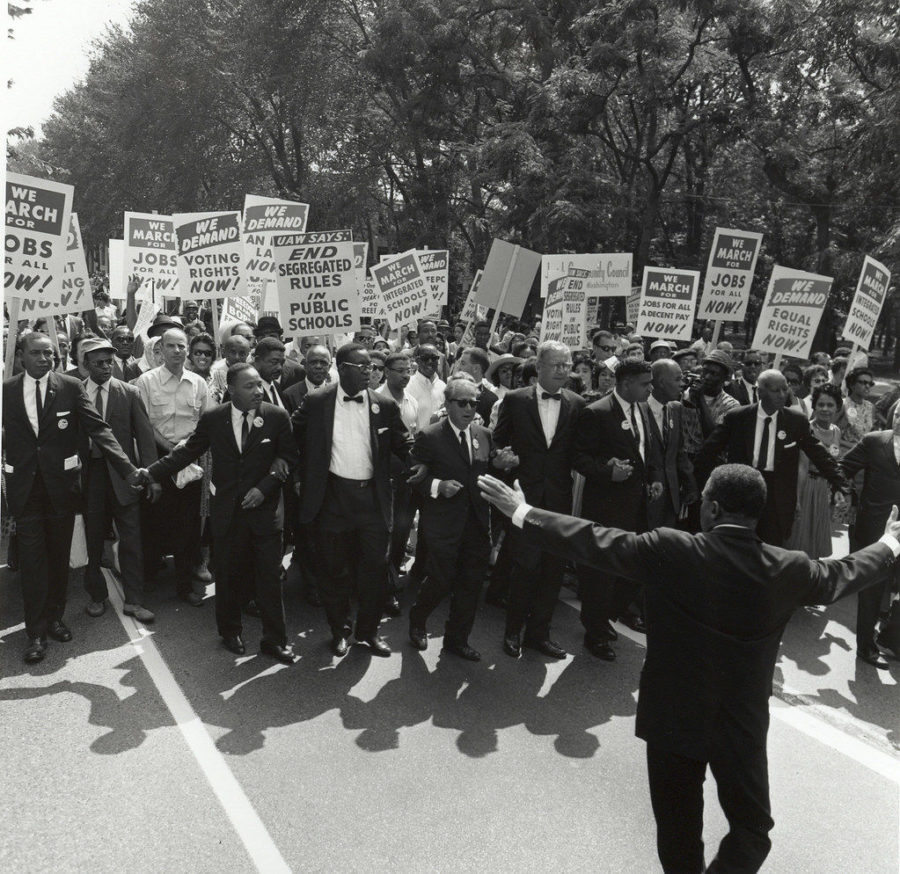Hellman: Inconsistencies within US laws and values
June 6, 2020
“All men are created equal.”
Unless you are Black. Unless you are Brown. Unless you are a woman. Unless you are homosexual. Unless you are transgender. Unless you don’t practice Christianity. Unless you are mentally or physically challenged or disabled. Unless you do not fit the mold set by the founding fathers in 1789.
I’m tired of white male government officials acting under the pretense of inclusivity and equality when their policies thrive on marginalizing millions of Americans. I’m tired of white supremacy. I’m tired of the U.S. public constantly having to shout our demands for equal rights and justice into deaf ears. I’m tired of social justice being suppressed by our government, instead of fought for by our government. I’m tired of officials thinking they know what’s best for the oppressed without listening to their stories or demands. I’m tired of a government that has more corruption than morality.
Over and over again, social justice movements arise in the U.S. Whether it’s a matter of race, gender, religion or sexuality, they all stem from the failure of the U.S. government and public to view and treat them as equals. Why is it so hard for the land of the free to provide its citizens with freedom? Why do people get unlawfully beaten, arrested and mistreated by the police, our upholders of the law, for demanding justice according to the law?
Recent events have made me realize the recurring inconsistency the U.S. government provides to its people with regard to the law. For example, the suffragist movement began in the 1820s, didn’t find traction until 1848 and is still being fought for today. Slavery lasted 246 years in the U.S. and took a civil war to abolish. After almost a century of segregation and discrimination, the civil rights movement began to take shape in the 1950s and is still being fought for today. The gay rights movement began slowly in the 1920s, gained traction in the 1960s and is still being fought for today. Fifty years after Stonewall, the New York Police Department finally admitted and apologized for wrongly enforcing discriminatory laws.
These movements are still being fought for by people facing discrimination today.
The U.S. boasts pride for its core values of freedom and liberty for all, but repeatedly fails to deliver. Instead, it has created centuries of laws that criminalize and dehumanize women, Black people, gays, trans people, mentally or physically disabled people or anyone else daring to not be a white man.
This cannot be undone or fixed with a new amendment or apology by government officials; it does not put a stop to the societal norms, prejudices and stereotypes that serve as oppressors for equality and justice.
Perhaps the reason why equal treatment for all people is seemingly unattainable in the U.S. is due to the failure of past and present government officials to reflect foundational U.S. values of freedom and equality within our laws. Social justice movements are born from this inconsistency and highlight the mistreatment of marginalized people.
I don’t know how to solve centuries of internal conflicts that plague the U.S., but I do know every contribution to ensure equality also serves as a reminder of the faults within our government.

















